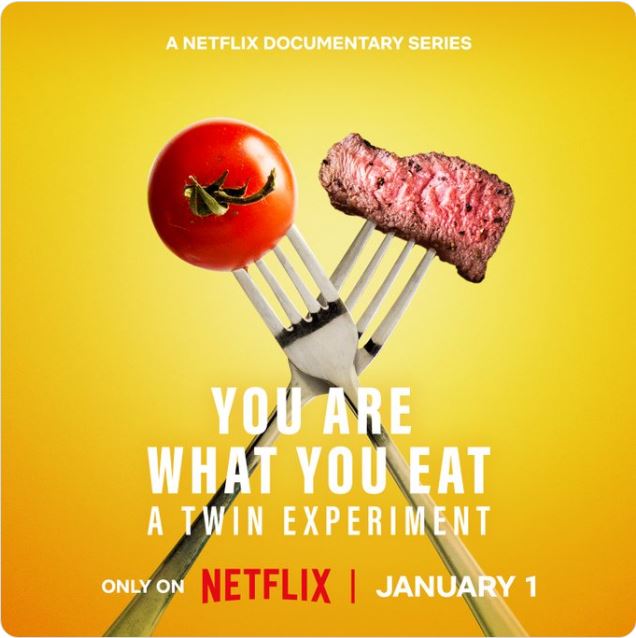
A new documentary series on Netflix is about an 8-week twin study, comparing an omnivorous diet with a vegan diet. The vegan diet seems to be the “winner” when it comes to cardiovascular benefits. However, there is also criticism.
You are what you eat
The series follows 22 twins who participate in a feeding experiment at Stanford University. One half of the twins is fed an omnivorous diet, the other a vegan diet. Both diets have a healthy composition, with lots of vegetables and fruit, whole grains and little sugar. The participants can eat as much as they want. In the first 4 weeks they have the main meals delivered to their home, during the rest of the experiment they put together their own meals. The film is a popular representation of the study, which was published in JAMA.
Results
After 8 weeks, the LDL level in the vegan group had decreased, as did fasting insulin and body weight. The vegan group ate on average 200 kilocalories less per day than the omnivorous group, while both groups were allowed to eat as much as they wanted. On the negative side, vitamin B12 levels dropped in participants on a vegan diet. According to the researchers, these results are an indication that a more plant-based diet can protect against cardiovascular disease.
Criticism
Of course, there is also criticism of the study. For example, the American Council on Science and Health claims that the participants are already very healthy themselves and that the differences in biomarkers (such as LDL cholesterol) in both groups were in the healthy range. Moreover, according to this Council, the results only concern biomarkers, and not about health. There is more criticism online about the design of the study, but the famous nutrition researcher Marion Nestle writes in her blog Food Politics: ‘The idea of the twin study is smart and attractive, it is logical that it receives a lot of media attention ( ..). This is further evidence of the positive effects of a largely plant-based diet.”
Source: Food Politics




